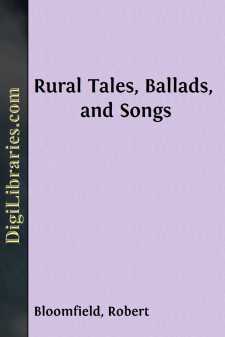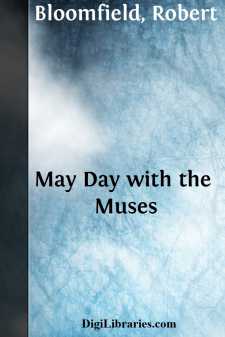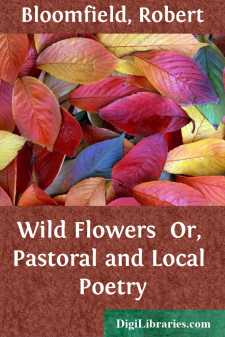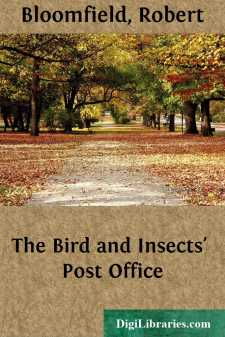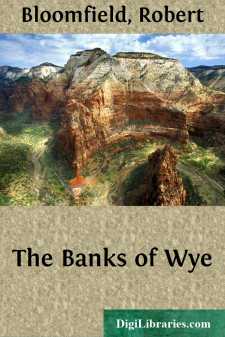Categories
- Antiques & Collectibles 13
- Architecture 36
- Art 48
- Bibles 22
- Biography & Autobiography 813
- Body, Mind & Spirit 142
- Business & Economics 28
- Children's Books 13
- Children's Fiction 10
- Computers 4
- Cooking 94
- Crafts & Hobbies 4
- Drama 346
- Education 46
- Family & Relationships 57
- Fiction 11828
- Games 19
- Gardening 17
- Health & Fitness 34
- History 1377
- House & Home 1
- Humor 147
- Juvenile Fiction 1873
- Juvenile Nonfiction 202
- Language Arts & Disciplines 88
- Law 16
- Literary Collections 686
- Literary Criticism 179
- Mathematics 13
- Medical 41
- Music 40
- Nature 179
- Non-Classifiable 1768
- Performing Arts 7
- Periodicals 1453
- Philosophy 64
- Photography 2
- Poetry 896
- Political Science 203
- Psychology 42
- Reference 154
- Religion 513
- Science 126
- Self-Help 84
- Social Science 81
- Sports & Recreation 34
- Study Aids 3
- Technology & Engineering 59
- Transportation 23
- Travel 463
- True Crime 29
Robert Bloomfield
Robert Bloomfield (1766-1823) was an English poet best known for his pastoral poem "The Farmer's Boy" (1800), which vividly depicts rural life and was immensely popular in its time. Born to a poor family in Suffolk, he was largely self-educated and worked as a shoemaker before gaining recognition for his literary talents. Bloomfield's works are celebrated for their detailed observations of nature and the lives of common people, though his fame waned later in life.
Author's Books:
Sort by:
Difficulties—Consent. 'Night will come on; when seated snug,'And you've perhaps begun some tale,'Can you then leave your dear stone mug;'Leave all the folks, and all the Ale?' 'Ay, Kate, I wool;—because I know,'Though time has been we both could run,'Such days are gone and over now;—'I only mean to see the fun.' She straight slipp'd off...
more...
August, 1790. The bard, who paints from rural plains, Must oft himself the void supplyOf damsels pure and artless swains, Of innocence and industry: For sad experience shows the heart Of human beings much the same;Or polish'd by insidious art, Or rude as from the clod it came. And he who roams the village round, Or strays amid the harvest sere,Will hear, as now, too many a...
more...
ABNER AND THE WIDOW JONES, A Familiar Ballad. Well! I'm determin'd; that's enough:— Gee, Bayard! move your poor old bones,I'll take to-morrow, smooth or rough, To go and court the Widow Jones. Our master talks of stable-room, And younger horses on his grounds;'Tis easy to foresee thy doom, Bayard, thou'lt go to feed the hounds. The first Determination. But...
more...
AUTHOR'S PREFACE. We all know that Æsop has made his birds and beasts talk, and reason too; and that so well as still to make the volume bearing his name a favourite with thousands. Perhaps, too, we all know that same French author has objected to this method of teaching, alleging that children should not be imposed upon (or something to that effect), and led to believe in the reality of talking...
more...
THE BANKS OF THE WYE. BOOK I. "Rouse from thy slumber, pleasure calls, arise,Quit thy half-rural bower, awhile despiseThe thraldom that consumes thee. We who dwellFar from thy land of smoke, advise thee well.Here Nature's bounteous hand around shall fling,Scenes that thy Muse hath never dar'd to sing.When sickness weigh'd thee down, and strength declin'd;When dread eternity...
more...


